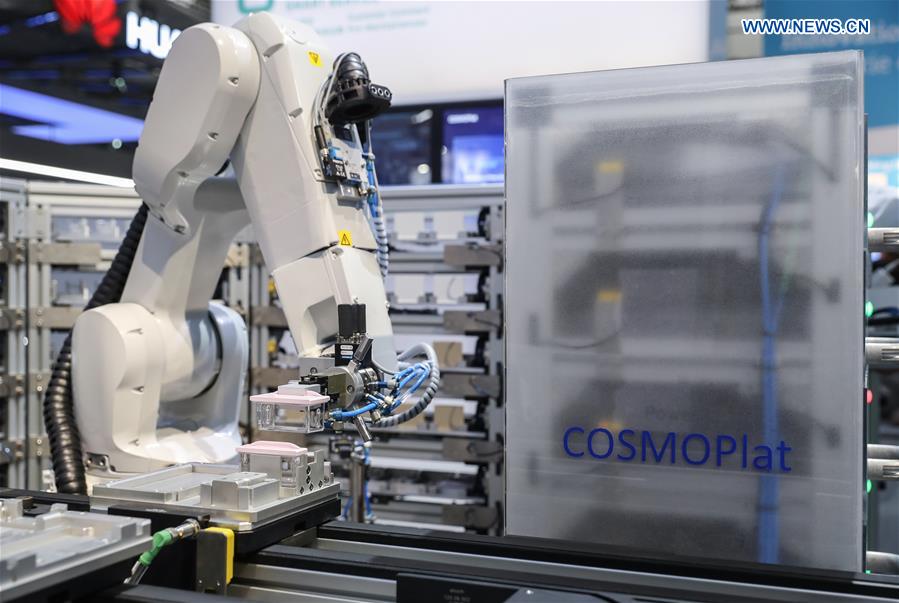'Made in China' progresses as global industry undergoes transformation
Xinhua | Updated: 2018-04-26 11:25

HANOVER, Germany - As the world's leading trade show for industrial technology, the Hanover Industrial Technology Fair is renowned for its showcase of the latest trends in production. This year, the expanded use of Industry 4.0 in the whole production process has been in the spotlight of the exhibition.
With the theme of "Integrated industry -- Connect & Collaborate," Hanover Fair 2018 has attracted over 5,000 exhibitors from 75 countries and regions. It runs until April 27.
Among the world leaders in manufacturing, Chinese companies are catching up with their latest in cutting-edge technology.
MORE INTELLIGENT, CONNECTED PRODUCTION
As the organizer of the fair, Deutsche Messe said this year witnessed the trend of more digitized production, the integration of automation technology, IT platforms and machine learning which would take Industry 4.0 to a higher level.
These include the integration of IT and traditional industry, artificial intelligence, Internet of Things and others.
For example, Europe's largest software company SAP showcased a simulated production line for beverage bottling. Thanks to the AI system in analyzing real-time data on the production line, bottles can be filled with beverages with different colors, an example of efficient customized production.
The latest IT technology makes machines more clever. Germany's leading intelligent censor maker SICK demonstrated its products that not only know the dimensions of a vehicle, but also could judge whether it is a car, a bus or a truck.
"Traditional sensors transmit only data, which is the result of the third industrial revolution. But smart sensors not only transmit data, they can also process and analyze data into information. That is Industry 4.0," SICK's senior vice president Bernhard Mueller told Xinhua.
"The Industry 4.0 implementation is no longer a showcase or test, instead it is a series of practical implementations," said Wolf-Henning Scheider, CEO of German car parts maker ZF Group.
"With the help of intelligent sensors, cloud computing and the Internet of Things, robots can see and think," said Scheider.
ZF Group demonstrated a fully-automatic electric forklift with AI control modules, which enable humans to teach machines so that the forklift can select solutions by itself under any situations, and hence substantially reduce error rates and improve productivity.
























